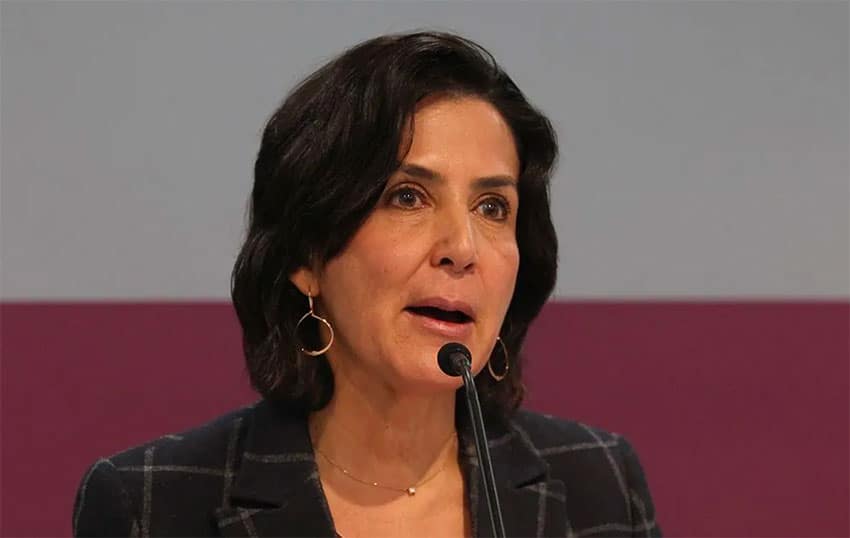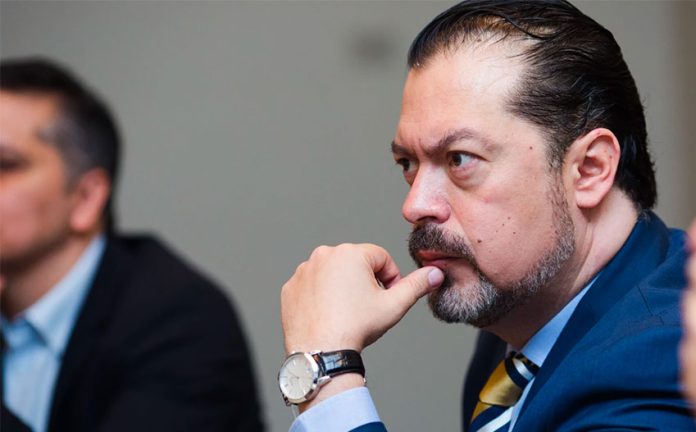A citizens’ committee that is supposed to lead the federal government’s National Anti-Corruption System (SNA) only has one of its five required members, while the system itself is in a “vegetative state,” according to the director of a think tank.
The role of the Citizen Participation Committee (CPC) in the SNA – created by the previous federal government – is to contribute to the formation of anti-corruption policy and oversee from a citizen’s perspective the activities of the six corruption-fighting institutions that make up the system: the Federal Auditor’s Office, the Federal Judiciary Council, the Anti-Corruption Prosecutor’s Office, the Ministry of Public Administration (SFP), the National Institute for Transparency and Access to Information and the Federal Administrative Justice Tribunal.
The committee should have five members who are experts on anti-corruption policy and not involved in party politics, but it has only one – Jorge Alberto Alatorre Torres, a professor at the University of Guadalajara.
Alatorre, the newspaper Milenio reported, has been left on his own after previous CPC members quit or concluded their terms and were not replaced.
No replacements were named initially because the authority tasked with appointing CPC members, the Selection Commission, had no members of its own. The federal Senate should have named replacements for outgoing Selection Commission members in October 2019 but failed to do so and continued to neglect its duty for more than a year.
The upper house of Congress did finally appoint new Selection Commission members in March this year but only after a federal court ordered it to do so. The directive came after three CPC members filed an injunction request in August 2020 that sought to compel senators to comply with their responsibility.
But four months after nine new members of the Selection Commission were appointed, the vacant CPC positions have still not been filled. If Alatorre were to resign from the CPC, the body that heads up the SNA would effectively disappear.
If that were to occur, the entire anti-corruption system – already out of favor with President López Obrador, who has relied heavily on two non-SNA institutions, the federal Attorney General’s Office and the government’s Financial Intelligence Unit, to combat corruption – would run the risk of losing legitimacy, Alatorre himself told Milenio.
However, the academic said he is committed to his position on the CPC and is not thinking about leaving.
Edna Jaime, general director of public policy think tank México Evalúa and president of the Selection Commission until October 2019, asserted that López Obrador – who has faced criticism for neglecting the SNA – has passed his indifference toward the anti-corruption system birthed by his predecessor onto the Senate, in which the ruling Morena party and its allies have a majority.
“… The president of the republic has never given any support to the SNA, he doesn’t consider it a suitable instrument [to combat corruption],” she told Milenio.

“… The president’s scant enthusiasm toward the SNA infected his party, Morena, … and other legislators who believed they could postpone the formation of [a new] Selection Commission,” Jaime said. She was also critical of the commission for not fulfilling its central task.
“The CPC only has one of its five members and is doing what it can, but everything related to the SNA is completely stalled and that has led it to a vegetative state, which hopefully can be overcome,” Jaime said.
There is at least some cause for optimism. In a report published Wednesday, Milenio said the Selection Commission is on the verge of starting the process to appoint four new members to the CPC.
However, there is some concern that the commission members – appointed by a Senate dominated by Morena – could make politically motivated appointments. In that context, several civil society organizations banded together to form a collective that launched a social media campaign based around the hashtag #PerfilesIdóneosYa (Suitable Profiles Now) in order to pressure Selection Commission members to promptly appoint properly qualified and independent CPC members.
The sole current member told Milenio that driving forward efforts to combat corruption – which López Obrador characterizes as the raison d’etre of his administration – is very difficult when he has no colleagues with whom he can share CPC work.
“… Dividing work between five [members] is not the same as dividing it between one. This effectively represents a challenge to moving the [anti-corruption] agenda forward,” Alatorre said.
However, he stressed that, on his own, he has taken on the responsibility of promoting the full implementation of the national anti-corruption policy.
Luis Ángel Martínez Ramírez, a corruption and transparency expert at the Ethos Public Policy Laboratory, said last year that the López Obrador administration was not making use of the policy.
With regard to the designation of new CPC members to join Alatorre, members of the #PerfilesIdóneosYa collective say that a meticulous selection process that ensures the appointment of suitable people must be carried out.
People who are qualified and completely free of political influence must be named, said Marco Antonio Zamarripa, a member of a Coahuila-based citizens’ group that is part of the collective.
Many people without relevant experience and with links to political parties have been involved in state-based anti-corruption systems, he said. The participation of such people in an anti-corruption system “puts its credibility and operation at risk,” Zamarripa said.
Amparo Menchaca of the Nuevo León-based Civic Council of Institutions said that it is “super important” that the process to appoint new CPC members be carried out “so transparently that there is no room for doubt that the best people are being chosen.”
Those people, she added, must meet “all the requirements established by the law, one of which is precisely that [CPC members must] come from civil society.”
With reports from Milenio
